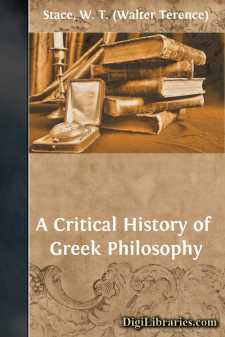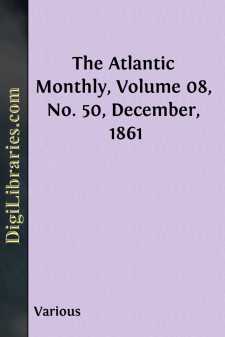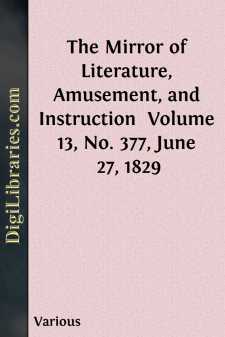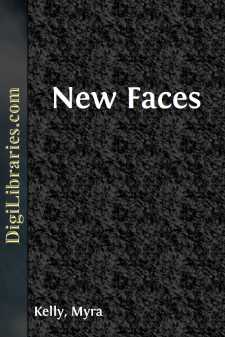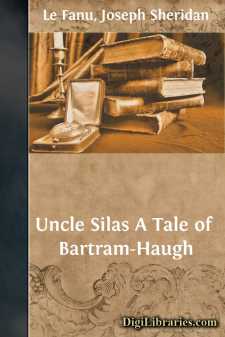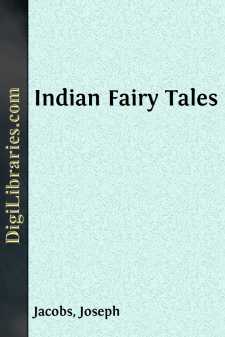Categories
- Antiques & Collectibles 13
- Architecture 36
- Art 48
- Bibles 22
- Biography & Autobiography 813
- Body, Mind & Spirit 142
- Business & Economics 28
- Children's Books 17
- Children's Fiction 14
- Computers 4
- Cooking 94
- Crafts & Hobbies 4
- Drama 346
- Education 46
- Family & Relationships 57
- Fiction 11829
- Games 19
- Gardening 17
- Health & Fitness 34
- History 1377
- House & Home 1
- Humor 147
- Juvenile Fiction 1873
- Juvenile Nonfiction 202
- Language Arts & Disciplines 88
- Law 16
- Literary Collections 686
- Literary Criticism 179
- Mathematics 13
- Medical 41
- Music 40
- Nature 179
- Non-Classifiable 1768
- Performing Arts 7
- Periodicals 1453
- Philosophy 64
- Photography 2
- Poetry 896
- Political Science 203
- Psychology 42
- Reference 154
- Religion 513
- Science 126
- Self-Help 84
- Social Science 81
- Sports & Recreation 34
- Study Aids 3
- Technology & Engineering 59
- Transportation 23
- Travel 463
- True Crime 29
Sort by:
PREFACE This book contains the substance, and for the most part the words, of a course of public lectures delivered during the first three months of 1919. The original division into lectures has been dropped, the matter being more conveniently redivided into chapters. The audience to whom the lectures were delivered was composed of members of the general public, and not only of students. For the most...
more...
by:
Various
THE HOME OF LAFAYETTE. After General Lafayette's visit to the United States, in 1824, every American who went to France went with a firm conviction that he had a right to take as much as he chose of the old gentleman's time and hospitality, at his own estimate of their value. Fortunately, the number of travellers was not great in those days, although a week seldom passed without bringing two...
more...
by:
Various
Loch Goil Head AND RESIDENCE OF CAMPBELL, THE POET. The Engraving represents Loch Goil Head, a small village in Argyleshire, as it name imports, at the end of Loch Goil. It is an exquisite vignette, of Alpine sublimity, and is rendered extremely interesting as the residence of Thomas Campbell, Esq. author of the "Pleasures of Hope," &c. and one of the most celebrated of British poets. His...
more...
by:
Myra Kelly
A business meeting of the Lady Hyacinths Shirt-Waist Club was in progress. The roll had been called. The twenty members were all present and the Secretary had read the minutes of the last meeting. These formalities had consumed only a few moments and the club was ready to fall upon its shirt waists. The sewing-machines were oiled and uncovered, the cutting-table was cleared, every Hyacinth had her box...
more...
by:
Charles Peters
CHAPTER I.THE VALLEY OF HUMILIATION. erle, I may be a little old-fashioned in my notions; middle-aged people never adjust their ideas quite in harmony with you young folk, but in my day we never paused to count fifty at a full stop." Aunt Agatha's voice startled me with its reproachful irritability. Well, I had deserved that little sarcasm for I must confess that I had been reading very...
more...
You say that Matthew is your own son, Mr. Emmett? Yes, Rev'rend Doane, and a better boy never stepped, if I do say it as shouldn't. I've trusted him to drive team for me since he was eleven, and you can't say more than that for a farm boy. Way back when he was a little shaver so high, when the war came on, he was bounden he was going to sail with this Admiral Farragut. You know boys...
more...
THE STOLEN TREASURE There is a certain little girl who sometimes tries to find out when I am not over busy, so that she may ask me to tell her a story. She is kind enough to say that she likes my stories, and this so flatters my vanity that I like nothing better than telling them to her. One reason why she likes them, I suspect, is that they are not really my stories at all, the most of them. They are...
more...
A PRELIMINARY WORD The writer of this Tale ventures, in his own person, to address a very few words, chiefly of explanation, to his readers. A leading situation in this 'Story of Bartram-Haugh' is repeated, with a slight variation, from a short magazine tale of some fifteen pages written by him, and published long ago in a periodical under the title of 'A Passage in the Secret History of...
more...
by:
Joseph Jacobs
PREFACE From the extreme West of the Indo-European world, we go this year to the extreme East. From the soft rain and green turf of Gaeldom, we seek the garish sun and arid soil of the Hindoo. In the Land of Ire, the belief in fairies, gnomes, ogres and monsters is all but dead; in the Land of Ind it still flourishes in all the vigour of animism. Soils and national characters differ; but fairy tales...
more...
It was the first day under the operation of the new Act. Everyone was a little nervous about the outcome, and John Jones, the Barrister, was no exception to the general rule. At three o'clock he was in the full swing of an impassioned appeal to the Jury. "I beg your pardon, Mr. Jones," said the Judge, glancing at the clock, "but I am afraid I must interrupt you. I cannot hear you any...
more...


